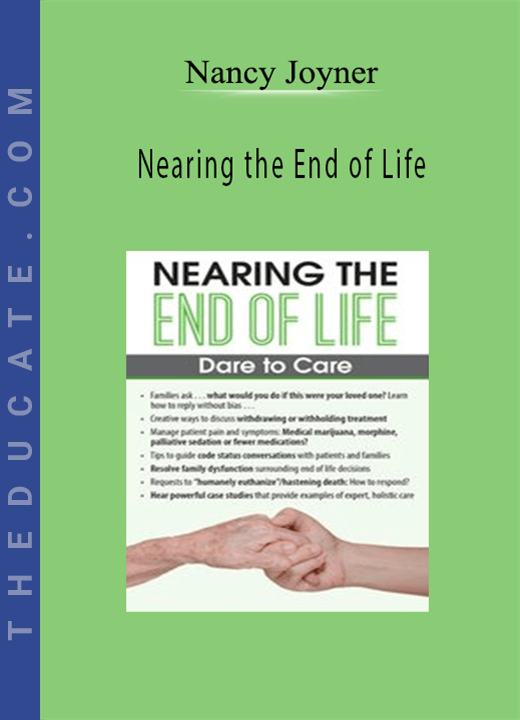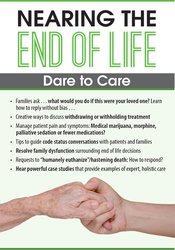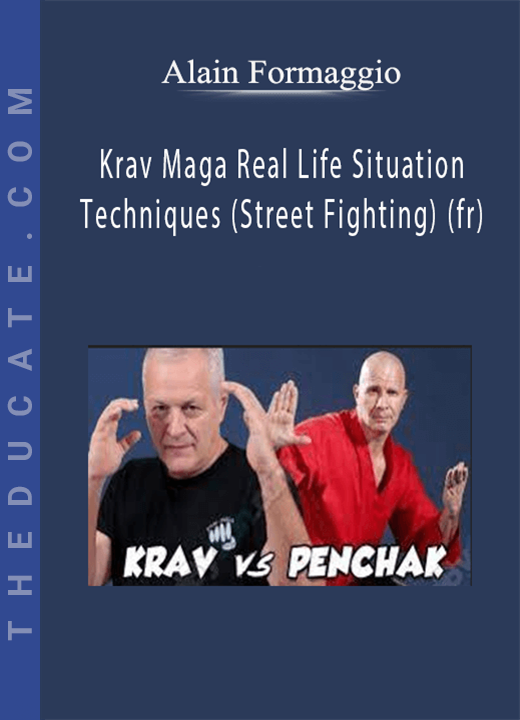Description
-
Nancy Joyner – Nearing the End of Life: Dare to Care
- Faculty:
- Nancy Joyner
- Duration:
- 6 Hours 25 Minutes
- Format:
- Audio and Video
- Copyright:
- Mar 09, 2018
Description
- Families ask . . . what would you do if this were your loved one? Learn how to reply without bias …
- Creative ways to discuss withdrawing or withholding treatment
- Manage patient pain and symptoms: Medical marijuana, morphine, palliative sedation or fewer medications?
- Tips to guide code status conversations with patients and families
- Resolve family dysfunction surrounding end of life decisions
- Requests to “humanely euthanize”/hastening death: How to respond?
- Hear powerful case studies that provide examples of expert, holistic care
Eleanor is an 83-year-old widowed lady with known chronic heart failure and advanced dementia. She is now hospitalized with a significant stroke and dysphagia. She does not have a healthcare directive and had never discussed what she would want, other than staying at home until she dies. She is full code. Her family still wants resuscitation attempted. Her children admit they are concerned about what is best for their mother.
What are options for Eleanor and her family? Would she benefit from artificial hydration and nutrition? How is she going to receive medications? Can some of her medications be discontinued? Who is going to be her caregiver?
In this compelling seminar, multiple case studies like Eleanor’s will provide you with examples that you can incorporate when care is more important than cure. To deliver expert, holistic care, healthcare professionals need to have a toolbox full of new interventions to promote quality care at the end of life.
Have you ever been asked, “what would you do if this was your family member?” Learn conversation options to use while staying neutral.
Did you know that a patient might enroll on hospice care and be a full code? We will discuss how this is done.
What can we do for patients seeking euthanasia who see this as the best solution? These situations are becoming more frequent. Anticipate how you will respond.
Strategies regarding comfort, communication, choices and control have unique issues and challenges for patients, families and health professionals. We have an obligation to know how to help provide emotional, spiritual, existential, and physical comfort for those who have life-limiting conditions and to support them through difficult decisions. It’s time to think outside the box.
Handouts
| Manual (6 MB) | 173 Pages | Available after Purchase |
Outline
- An Inexact Art & Science
- Illness and dying trajectories
- Frailty
- Dementia
- Prognostication and prognostic scales
- When to refer to palliative care or hospice (disease specific)
- Essentials of Care: Comfort, Communication, Choices, Control
- Comfort Always
- Morphine: Still the gold standard?
- Pain during the final hours of life
- Drug misuse: How to avoid it
- Opioids for dyspnea
- Thirst vs. xerostomia
- Medical marijuana
- Complementary and alternative therapies
- Emotional distress interventions
- The role of spirituality
- Palliative sedation
- Communication: Everyone is Involved
- Advance care planning: More than just a form
- The terminology matters
- Your role in these critical conversations
- How much can we share?
- Truth vs. hope
- Code status discussions
- DNR does not mean do not treat
- Addressing concerns and needs of the family
- Thanatophobia: Is it fear of dying or fear of death?
- Premortem surge
- Near death awareness
- The dying process
- Choices: Shared Decision-Making
- Nutrition & hydration choices
- Voluntarily Stopping Eating and Drinking (VSED): Benefits & burdens
- Life-sustaining treatment
- Non-beneficial treatment choices
- Faith-based influences
- Ventilator support
- Dialysis or renal palliative care
- Devices to extend life
- Hastened death request: Why not humanely euthanize?
- Allowing Control: Patient-Centered Care
- Reframing hope
- What do family members want you to consider
- Who makes the decision
- What about family dysfunction…
- Is the focus quality or quantity?
- Decision to withhold or withdraw care
- Challenging decisions: Honoring patients’ wishes
- Cultivating Moral Resiliency
- Moral resilience–preserving/restoring integrity
- Personal vs. professional grieving
- Enabling character and honorable action
- Ethical Competency
- Comfort Always
Faculty
Nancy Joyner, RN, MS, APRN-CNS, ACHPNRelated seminars and products: 4
Nancy Joyner is currently a Palliative Care Clinical Nurse Specialist for Altru Health System in Grand Forks, North Dakota. Nancy has extensive experience caring for patients with end stage disease, and working with hospice patients and their families at home and in the acute care setting. Her care for this specialized patient population includes intensive care, surgical critical care, oncology and renal patients. Nancy has had training through the Center to Advance Palliative Care, Palliative Care Leadership Center at Fairview Health Services in Minneapolis. She holds a certification as an Advanced Practice Hospice and Palliative Care Nurse and has prescriptive authority within her palliative scope of practice.
Nancy is an End-of-Life Nursing Education Consortium trained presenter, having presented and published at local, state and national levels. She has researched and published continuing education articles on pain, hydration and nutrition in terminal care, as well as Alzheimer’s Disease. She serves as an active work group member for the Institute for Clinical Systems Improvement (ICSI) Palliative Care Guideline development. She recognizes that caring for patients with end stage disease, and their families, requires extreme sensitivity, deep compassion and extraordinary knowledge.
Speaker Disclosures:
Financial: Nancy E. Joyner is CEO and President of Nancy Joyner Consulting, P.C. She receives a speaking honorarium from PESI, Inc.
Non-financial: Nancy E. Joyner has no relevant non-financial relationships to disclose.








7 reviews for Nearing the End of Life: Dare to Care – Nancy Joyner
There are no reviews yet.